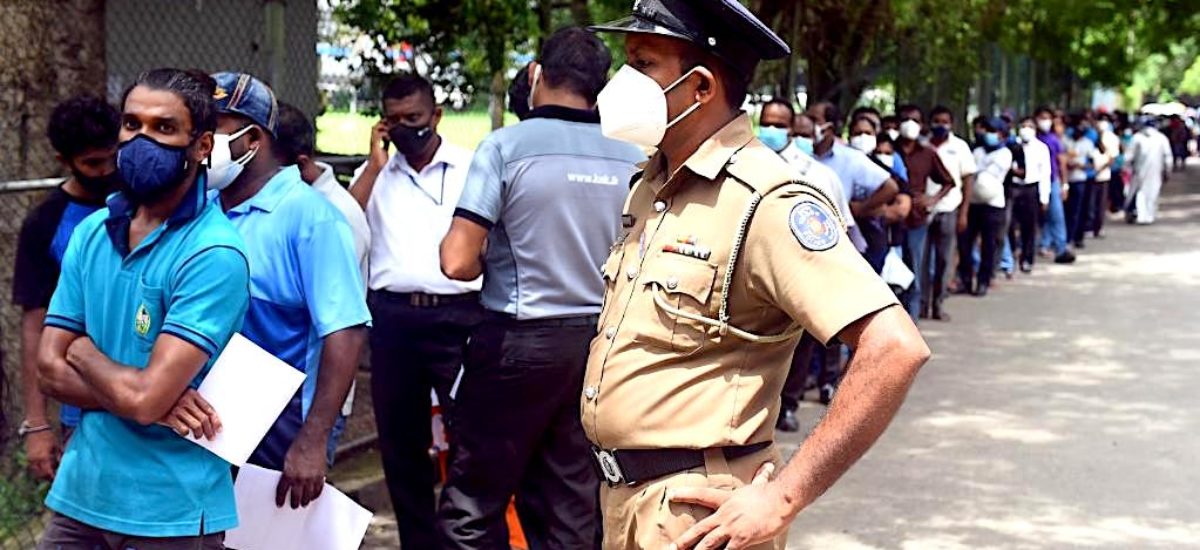Photo courtesy of Xinhua
Today is World Health Day
This year World Health Day focuses on the theme of “Health for All” – a theme that is strongly connected to health targets of the Sustainable Development Goals. However, as we barely emerge after facing the heavy toll of the COVID-19 pandemic, the goal of health for all needs to be built on the lessons learnt, especially within the past three years. This article will synthesize two main takeaways that matter to us all to achieve health for all.
Political determinants play an outsized role in health
The impact of political decisions on health has been apparent during this pandemic. Countries that were ranked very high on the Global Health Security Index did poorly when responding to the pandemic. The Global Health Security Index measures readiness of countries to face health emergencies such as pandemics. The US and the UK, both within the top five of GHS index, performed poorly due to bad political leadership. We also saw other countries such as Brazil take erroneous decisions in the face of a raging pandemic, putting lives at risk. We saw within Sri Lanka poor policy decisions that unnecessarily stigmatized the Muslim minority or resulted in increased spread of COVID-19.
Therefore it is important to recognize the value of and ensure accountability within political decisions that impact the health of the public. This needs to be a joint effort of politicians, academics, healthcare professionals, journalists and the general public. Influence on the government decision making to implement public health measures during the pandemic due to the collective advocacy of healthcare workers and scientists and the collective effort to vaccinate the public against COVID-19 can be taken as positive examples within Sri Lanka. However, Sri Lanka continues to face challenges with a weakening health system that is depleted of essential medicines. During this ongoing crisis, it is imperative to ensure integrity, transparency and prioritization of the well being of the public within the political leadership. Both at a global level and at the national level political apathy, lack of integrity and political narrative going against evidence informed public health decision making will continue to cause loss of lives and preventable deaths.
Re-assertion of health as more than just physical wellbeing
While health is defined as physical, mental and social wellbeing and not just the absence of disease or infirmity, we often tend to overlook aspects related to mental and social wellbeing. Across the world economic challenges have compounded the mental health challenges that heightened during the pandemic. As we emerge from the pandemic, our new normal should not be to go back to disregarding the importance of social and mental wellbeing. Sri Lanka specifically need to consider the impact of social determinants of health on the wellbeing of the public. Challenges such as malnutrition among children, increasing cost of living and heightening economic pressures have a direct impact on health outcomes of the population. As social determinants of health deteriorate, the health system will have to share an increased burden despite already facing challenges with shortages. Therefore, caring and supporting the vulnerable will have a significant impact on improving the health of our population.
Mental health became a buzzword during the pandemic and increased visibility of the importance of mental health is a positive factor. However, it is important to question whether there have been systemic approaches to improve the mental wellbeing of our communities. It is also important to question whether we have taken steps to destigmatize focusing on mental wellbeing at personal and community levels. Renewed policy focus on improving mental health, making mental health services accessible to everyone and efforts to normalize seeking mental healthcare and sharing resources will be essential for the recovery of Sri Lanka. Improving mental and social wellbeing not only improves health outcomes, reducing the burden on the health system, but also helps strengthen our workforce contributing to our economy. Hence, addressing social determinants of health and prioritizing mental health at the highest policy making level will pay dividends in terms of health and economy.
COVID-19, while crippling health systems and economies across the world, provided us with an opportunity to reassess our priorities at the governance level and at a personal level. It is an opportunity to recognize the interconnectedness of health of the population to their wellbeing beyond absence of disease or infirmity and an opportunity reimagine the pathways to achieving the elusive goal of health for all. It will also be important to remember that we are not completely out of the pandemic yet.

